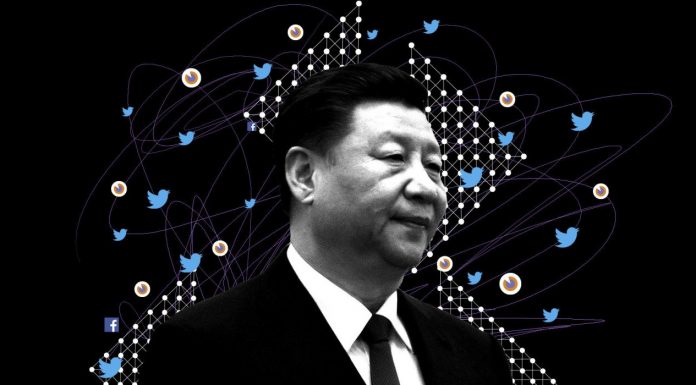As the Chinese Communist Party prepares for its Sixth Plenum in Beijing this week, the Party aims not just to re-write its own history, but to begin to write its future.
The implications are scary not just for China, but for the U.S. as well.
“When more than 300 members of China’s political elite gather in Beijing this week their main task will be to review a draft history resolution that defines the ruling Communist Party’s ‘major achievements and historical experiences’ since its founding 100 years ago,” said CNN.
In re-writing the history, China’s Communist Party strongman, Xi Jinping, hopes that he can extend his rule, extinguishing the last vestiges of legal and constitutional restraint on his authority, and become equal to previous Communist Party bosses Mao Zedong and Deng Xiaoping by creating a Greater China that reunites ethnic Chinese territory under Communist rule.
“By exalting Mr. Xi,” said the New York Times, “the decision will fortify his authority before a party congress late next year, at which he is very likely to win another five-year term as leader.”
“The orchestrated acclaim around the history document, which could be published days after the Central Committee meeting ends on Thursday, will help deter any questioning of Mr. Xi’s record.” the Times continued.
At China’s 6th Plenum, Xi going full spectrum Orwellian, rewriting the past to control the future.
To Steer China’s Future, Xi Is Rewriting Its Past https://t.co/vbVfxQmKNW— Robert Manning (@Rmanning4) November 8, 2021
Xi has tightened censorship for China, eliminated free-markets and generally sought to increase the power of the state, as represented by himself, since becoming lifetime president in 2018.
Such consolidation of power for Xi is a prime prerequisite as he faces the more difficult task of subduing Taiwan, the island nation to the south where Chinese opposition to communist rule on the mainland historically resides.
After successfully annexing Hong Kong last year, Xi is seeking to bolster his claim that he is one of the greatest historical Chinese communist leaders by returning Taiwan to Chinese rule.
The U.S. and its allies, including the Australians, have been preparing for Beijing to increase pressure on Taiwan, and this week’s Plenum may be the bridge the communist nation builds that finally allows Xi to use more coercive methods against Taiwan.
“I think it’s highly possible that at some point in time, perhaps quite soon, China might up the ante, either with a blockade of the so-called rebel province ― to teach the Taiwanese that they … need to make some kind of an accommodation with Beijing ― or perhaps even a full-scale invasion,” said former Australian Prime Minister Tony Abbott.
To project power against Taiwan, Xi has to make sure that the Party and, to a lesser degree, the country, understands that he is in complete charge. The quickest way for doing that is through the historical documents issues by this week’s Plenum.
“The essential function of all of this verbiage, make no mistake, will center on the person and power of Xi Jinping, defining his leadership as the way forward, on the basis of an understanding of history that defines his core agenda,” wrote David Bandurski, director of the China Media Project at the University of Hong Kong, according to CNN.
And unfortunately, Xi’s core agenda, apart from seeking ultimate political power, is the creation of a Greater China, which seeks to return all the historical Chinese claims to territory worldwide after a “century of humiliation” at the hands of Europeans and the Japanese.

